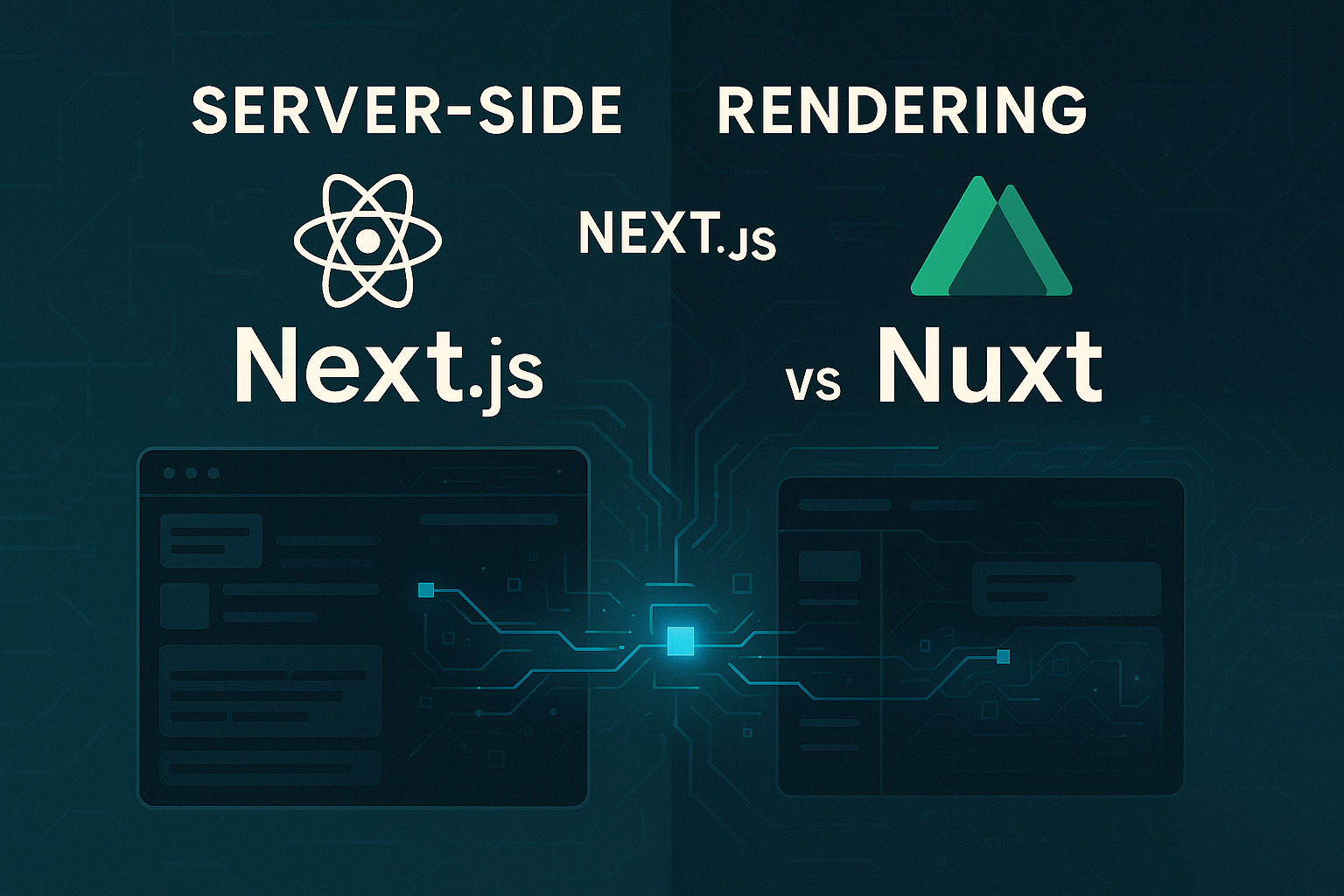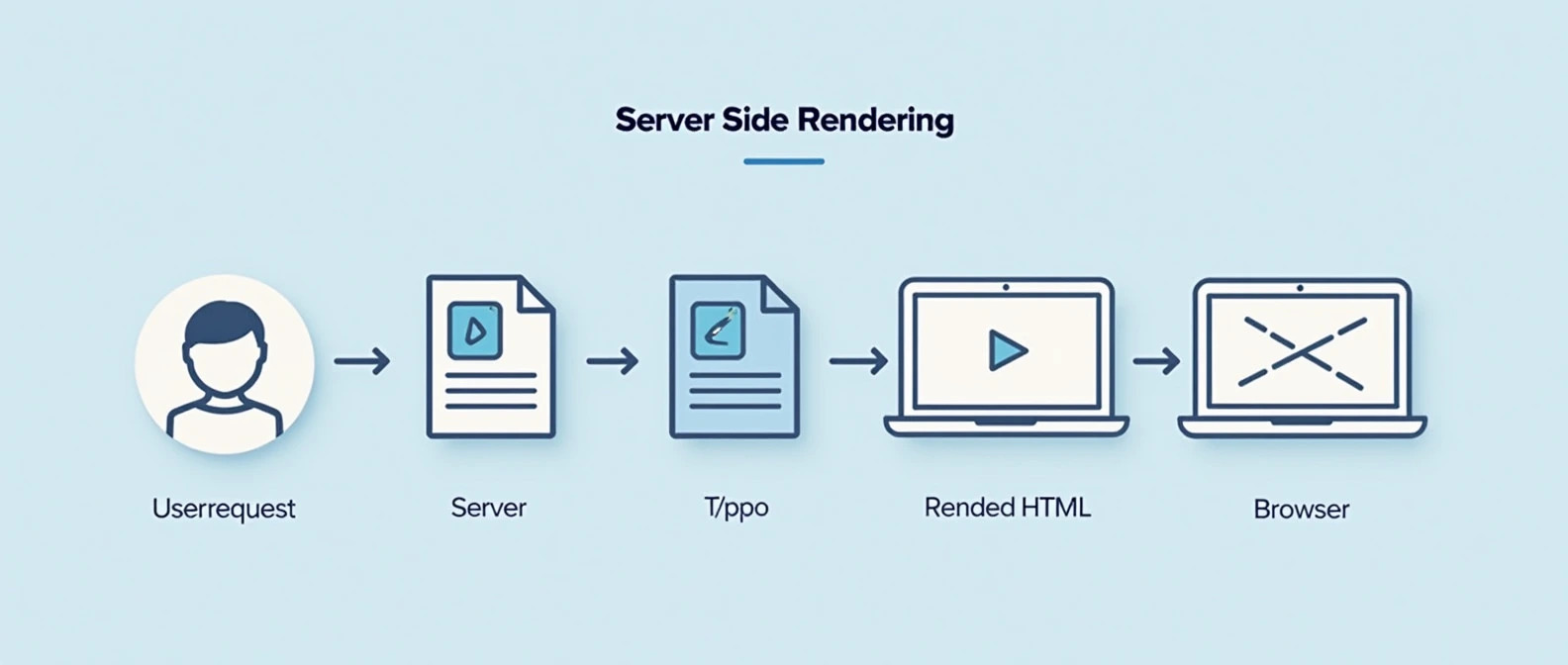Server-Side Rendering: Next.js vs Nuxt
- 1 min read
Next.js and Nuxt are two powerful frameworks for modern web applications utilizing server-side rendering (SSR). In this article, we compare them in detail from an SSR architecture perspective.

In today’s web development landscape, Server-Side Rendering (SSR) has become a critical architecture to improve user experience and SEO performance. Especially Next.js, based on React, and Nuxt, based on Vue.js, are leading tools in SSR solutions. In this post, we’ll compare both frameworks to help you decide which is best suited for your project.
What is Server-Side Rendering (SSR)?
Server-Side Rendering is the process where a web page is rendered on the server and sent to the client as a fully-formed HTML page. This method is especially useful for:
- Projects with high SEO requirements
- Applications that need faster initial load times
- Social media previews that require rendered HTML metadata

What is Next.js?
Next.js is an open-source framework based on React, offering robust solutions for both SSR and static site generation. It supports multiple routing strategies such as App Router and Pages Router.
Advantages:
- Deep integration with the React ecosystem
- Hybrid SSR + Static Rendering support
- Easy-to-implement API routes and middleware
- Advanced features like Incremental Static Regeneration (ISR)
- Seamless integration with Vercel
What is Nuxt?
Nuxt is a Vue.js-based SSR framework that makes SSR accessible for Vue developers. With automatic routing, meta tag management, and state management integrations, it prioritizes developer experience.
Advantages:
- Low learning curve for Vue developers
- Automatic page routing
- Built-in integrations with Vuex, Pinia
- Ready for universal apps
- Composition API support with Nuxt 3
Next.js vs Nuxt: A Comparison
-
Library Base
- Next.js: React
- Nuxt: Vue.js
-
Learning Curve
- Next.js: Moderate – Requires React knowledge
- Nuxt: Easier – Familiar for Vue developers
-
Performance
- Both are highly optimized for SSR. Next.js has an edge with Vercel’s CI/CD and edge deployment.
-
Modularity & Ecosystem
- Next.js benefits from the larger JavaScript ecosystem
- Nuxt is praised for Vue’s simplicity and elegance
-
Internationalization (i18n)
- Both frameworks offer built-in or plugin-based multilingual support
Eastern European Context: Developer-Friendly Choices
From the perspective of Eastern European developers—especially in Turkey:
- Nuxt is ideal for junior or solo developers thanks to Vue’s simplicity.
- Next.js shines in large-scale, enterprise-grade projects where React is already in use.
At Euro IT Sourcing, we offer tailored SSR solutions with skilled developers proficient in both Next.js and Nuxt. We help you optimize development costs while maintaining code quality.
Final Thoughts
Both frameworks excel at SSR and can yield great results when applied in the right context. Your choice should be driven by your team’s expertise, project complexity, and performance goals.
This article was written by Matt Borekci. Connect on LinkedIn
Contact us

JAMstack in 2025: Is It Still Worth It?
Is JAMstack still a relevant web architecture in 2025? In this article, we explore its current role in frontend development, the benefits it offers, and how partnering with Eastern European developers can maximize its impact.